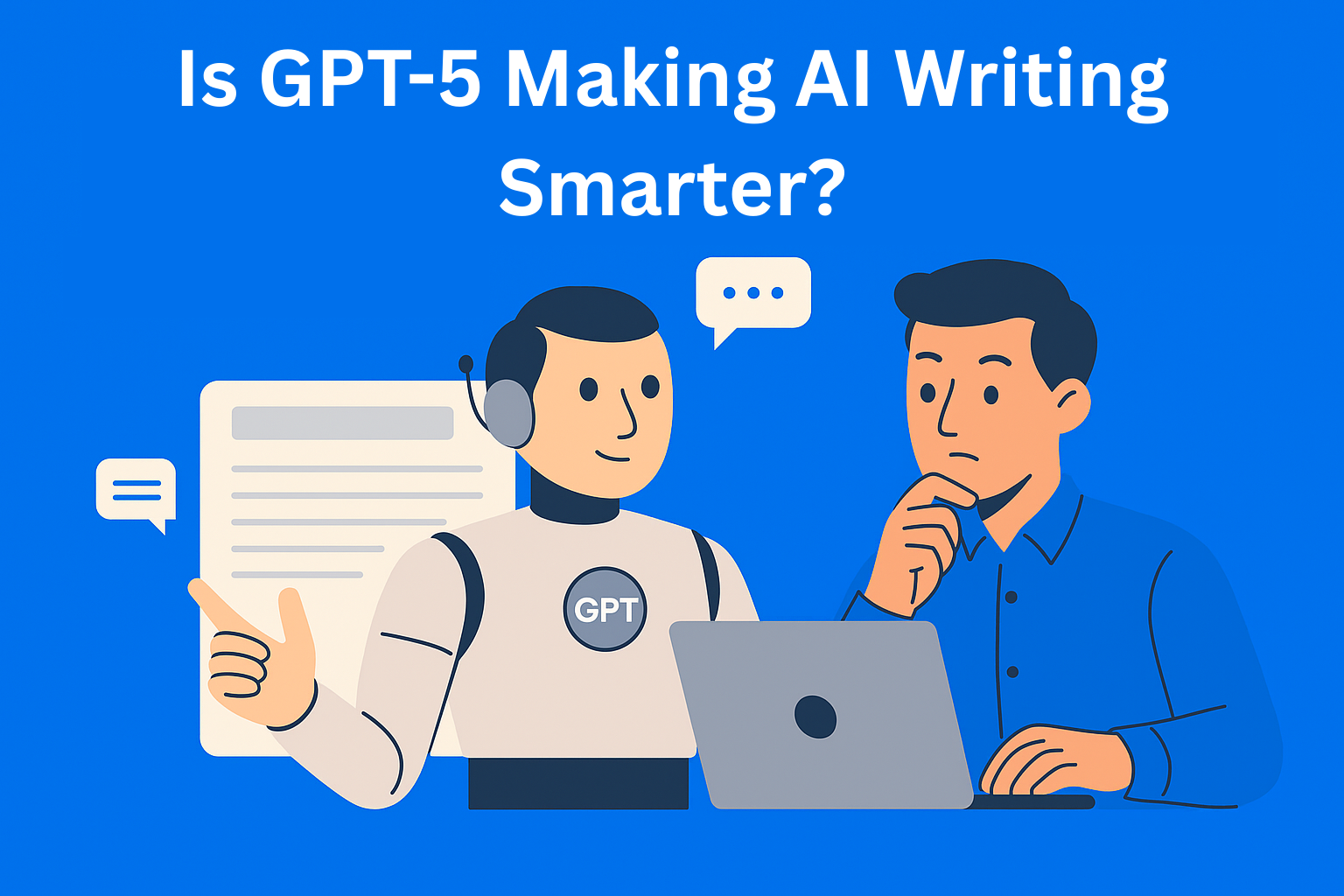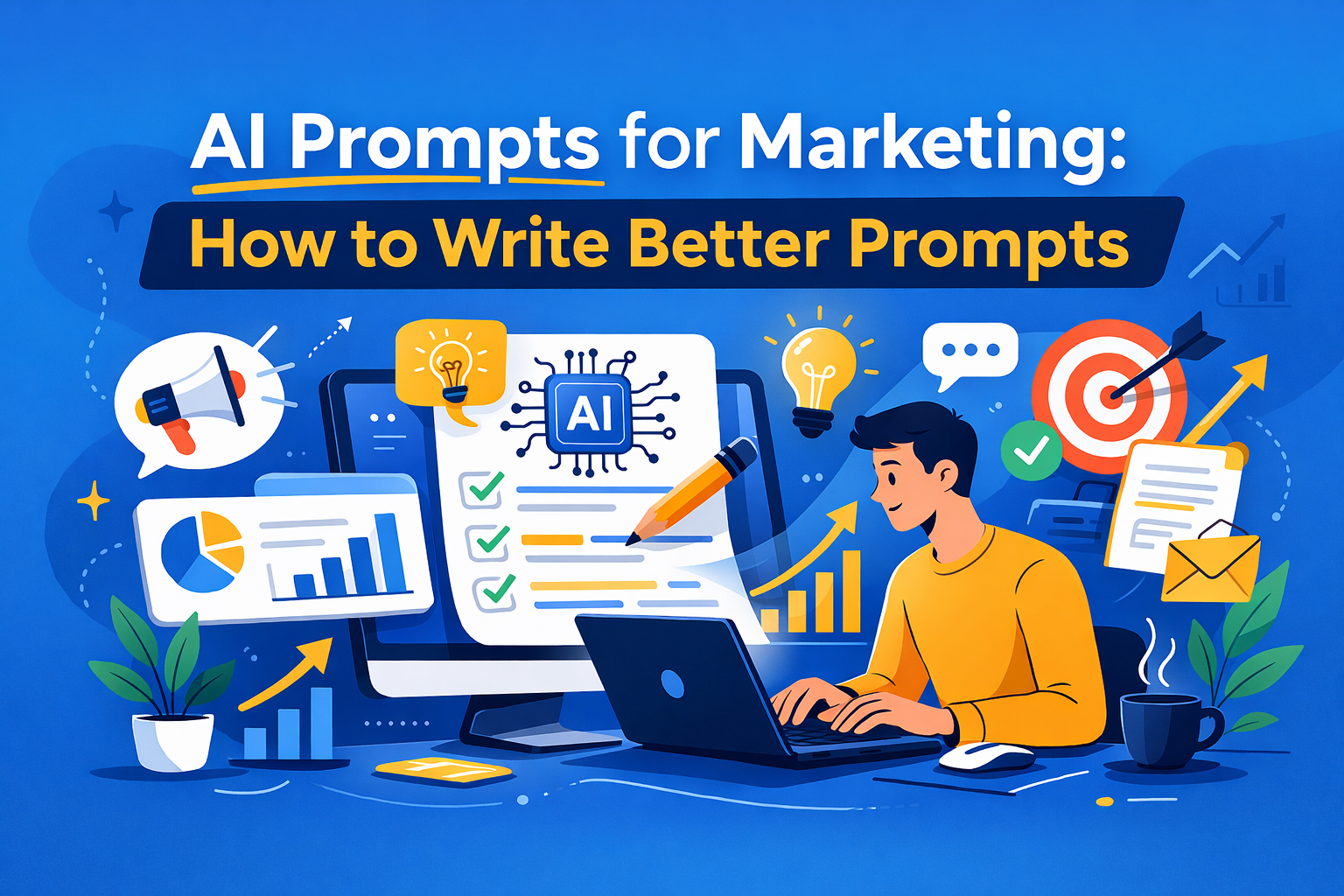Will ChatGPT-5 Make AI Content Smarter, Not Just Faster?
Is GPT-5 just faster or actually smarter? Discover how the latest ChatGPT model is changing the way AI writes: more natural, more human-like, and maybe just a bit too good at it. Will we still know who’s really behind the words?

Every time a new version of ChatGPT comes out, everyone immediately starts talking about it. Now that GPT-5 is out, many are wondering if AI-generated texts will finally start to sound natural, like they were written by a human instead of a robot. From GPT-3 to GPT-4, we've seen how much faster and more accurate these models have become. But the big question is whether the next step is to write smarter, not just faster.
Key Takeaways
- Smarter AI means more than speed. GPT-5 aims to improve nuance, emotion, and audience awareness not just output volume.
- AI still lacks the human spark. Personal tone, imperfections, and emotional depth are what separate people from machines.
- Technical upgrades = better context. GPT-5 has enhanced memory, tone recognition, and contextual understanding in longer conversations.
- AI's "signature" is fading, but is that good? As AI gets more human-like, transparency and disclosure become more important than ever.
- The future is hybrid writing. The best results come when AI does the heavy lifting and humans bring the creativity, emotion, and fact-checking.
What Does "Smarter" Writing Actually Mean?
When we say "smarter," we don’t just mean longer and more complex sentences.
Smart writing means:
- Understanding nuance
- Grasping context
- Conveying emotion
- Knowing the target audience
While "faster" means we can get 1000 words per minute, "smarter" means those words make sense, carry weight, and sound like they were written by someone with experience and a feel for the topic.
Interestingly, many AI models are already pretty good at mimicking style, but they still lack those little "imperfections" that make human writing feel alive - like light sarcasm, unusual expressions, and personal stories.
The AI Signature - Can It Disappear?
No matter how advanced the models get, a trained eye can still spot AI text. Repeated phrases, overly neat structure, uniform sentence lengths, and certain phrases that AI tends to overuse - all these things make AI content easier to identify.
GPT-5 might be able to reduce these signals - but that raises new questions. Do we really want AI text to be indistinguishable from human writing? And what happens if AI can write exactly like a real person?
There’s a fine line between AI writing in an interesting way and overdoing it. If it sounds too human, people might wonder whether a person actually wrote it or not. And if it comes off too cold and emotionless, the connection with the reader is lost.
Technical Leaps That Could Make a Difference
GPT-5 has more parameters, better training data, and a more advanced understanding of context. This allows it to better connect information in longer conversations and more accurately pick up on tone and writing style.
Also, GPT-5 understands context and tone better, so it can generate text that sounds more natural and easier to read. While it still can’t always pick up on sarcasm or deeper cultural nuances, it gives the impression that it better "gets" what it’s writing and who it’s writing for.
Still, it's far from being able to completely replicate a human writer.
Human vs. AI Writing - Will the Line Disappear?
If AI starts writing so well that we can no longer tell it apart from human writing (which I honestly don’t think will happen anytime soon, but you never know), that could change how we read, write, and decide who to trust.
The good side is that we can create content faster, get instant information, and more easily adapt texts to different audiences.
However, there’s a risk. If we can’t tell AI and human text apart, how will we know what to believe? That’s why the importance of AI disclosure (being clear about who or what created the content) is growing. I’m sure you’ve had moments like me when ChatGPT confidently gave you wrong information, but you knew it was AI and that it could make mistakes (it even says so at the bottom of the chat). Now imagine reading something wrong and not knowing if a human or AI wrote it - that’s tricky, right?
I think the solution isn’t for AI to sound 100% human, but for it to develop its own recognizable yet pleasant style that people enjoy and trust. And just to be fair - besides occasionally making mistakes, it’s also helped me a lot.
The Future of Writing With GPT-5 and Beyond
For writers, journalists, and content creators, GPT-5 can be a powerful partner. It can suggest ideas, generate first drafts (almost the same like the previous models, just a bit better), and then a human can add their personal touch, check facts, and bring in creativity.
This means writing could become a collaboration between humans and AI, where AI handles the boring technical part, and the writer brings in their tone, style, and that personal spark AI still lacks. That way, we get both speed and quality.
Conclusion
In the coming months, we’ll see whether GPT-5 really pushes the limits of what AI can do in writing. And whether it will sound fully human or keep its AI "signature" - that depends on both the tech and our expectations. Personally, I think it’ll be the second option.
Maybe the future isn’t about perfectly imitating people, but about AI developing its own style - smart, natural, but still recognizable. And it’s up to us to decide if that’s what we want.






